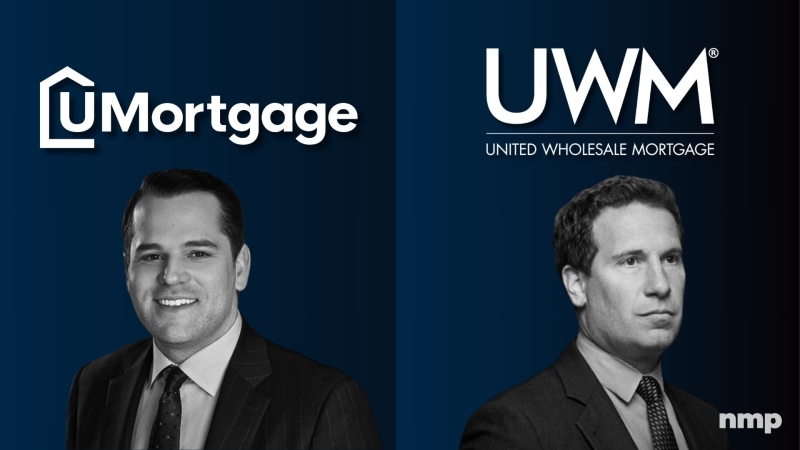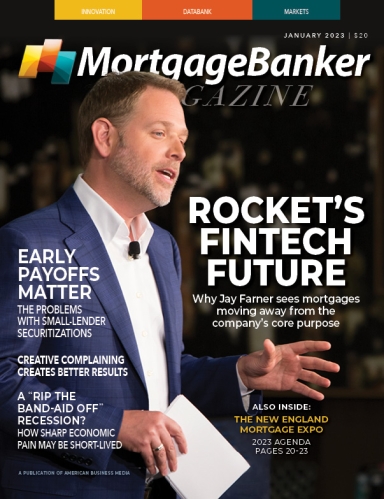‘Very Cheap Leads’
Furthermore, Barker said if you convert 5% of those leads into Rocket Mortgage customers — the typical margin that they generate — that will generate a couple billion worth of earnings.
For now, the service exists to please customers and make the company “stickier” as analysts like to say, but ultimately what it generates are very cheap leads.
It’s expensive to generate a mortgage customer. If you go to a broker, you have to pay 1.5% on that mortgage, or one and a half points for generating that mortgage. For a $300,000 house you’re paying a broker $4,500 for that customer. But if you get a Rocket Money customer that you’re already servicing, there’s no real incremental cost or it’s very minimal.
Sure, it takes money to operate Rocket Money and there is some technology associated with it. It will take some investments to develop it and update it over time, but these costs are inconsequential compared to what it costs to bring in leads through brokers.
In the third quarter earnings call, Rocket Chief Accounting Officer Brian Browns said, “One of the biggest challenges in the mortgage industry is the cost to acquire a client, which typically runs in thousands of dollars. In contrast, Rocket money can acquire a new client for less than $100, which is a significant difference.”
The beauty of this funnel system Rocket is building where they initially acquire the client through Rocket Money then lead them to use the rest of their services to fulfill financial needs is that it’s a huge money saver.
“Acquiring a client one time for one product or service will cost you a certain amount of marketing dollars,” Farner said. “But if you can engage that client daily, weekly, monthly, and bring them back for another service, let’s say it’s Rocket Solar… you’re able to help the client reduce cost and generate revenue without paying to acquire the client again.”
The whole reason for creating that one-stop-shop is to generate lower cost customer acquisition goals, Barker said. “And no one’s ever done that in mortgage, like from a mortgage lead. It’s all been very episodic. And so when you think about what Rocket wants to do… I think it’s great that they’re doing it,” Barker added.
Can You See It Now?
Imagine one platform where you can manage all your payments and acquire the loans you need throughout your lifetime. You could cancel your Netflix subscription, refinance your auto loan, and apply for a mortgage all in the same day by pressing a few buttons. An app like this could be an absolute game-changer, and especially attractive to the younger and more digitally advanced generations.
“When you think about the engagement that we have with that client on a monthly base basis as they make payments, there’s an opportunity much like Amazon to offer other related services, and that’s exactly what we’re doing as we talk about Rocket Money and Rocket Rewards and Rocket Loans and Rocket Homes,” Farner said.
Once a person graduates college and lands their first job, they’ll have to step into the real world of managing monthly bills, subscriptions, insurance, credit card debt, and begin to take ownership of their finances. They’ll need to gain some financial literacy in order to understand how to apply for their first loan or credit card.
“Every experience is separate and so it’s hard for clients to connect all of those experiences to manage their finances,” Farner said. “And so there’s a huge opportunity to place all of this on one platform.”
By centralizing these transactions into one platform, it eliminates confusion, delays, and costs for the consumer.
“When I think about where Rocket’s headed, Amazon is a great example,” Farner said. “I may later today recognize that I’ve gotta buy a light to install in my garage. I may do it on Amazon. Later today, I may have to buy some Halloween costumes for my kids. I’ll do it on Amazon. It offers many different types of products, but it’s one company that knows me, that can execute on a delivery that I have confidence in.”
Rocket’s goal is to have the same kind of centralized platform that will serve consumers’ financial needs.
“That’s exactly what you’re seeing us do as we grow out these businesses or acquire new businesses, is leverage this great core of mortgage, but wrap it with these financial services and this engagement platform that we’re building,” Farner said. “To allow our clients to constantly keep up to date on their finances, but also allow the company to have the experience and the relationship with the client on an ongoing basis so we can leverage the marketing costs time and time again… So I think Amazon is a great blueprint for where you’re seeing Rocket going.”












